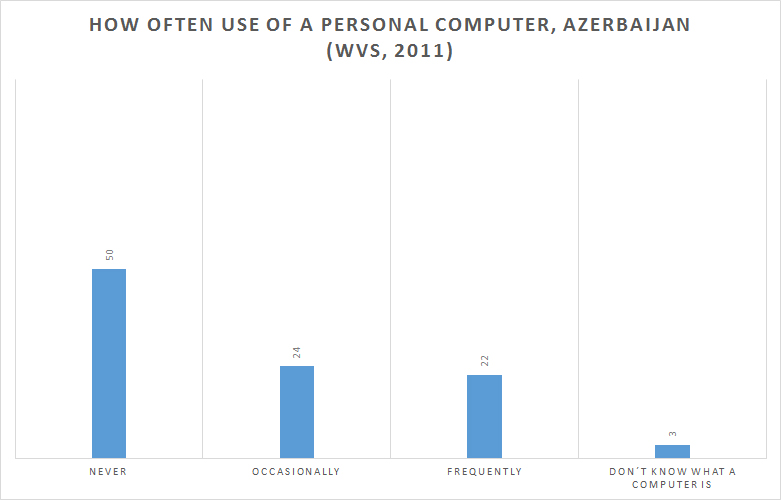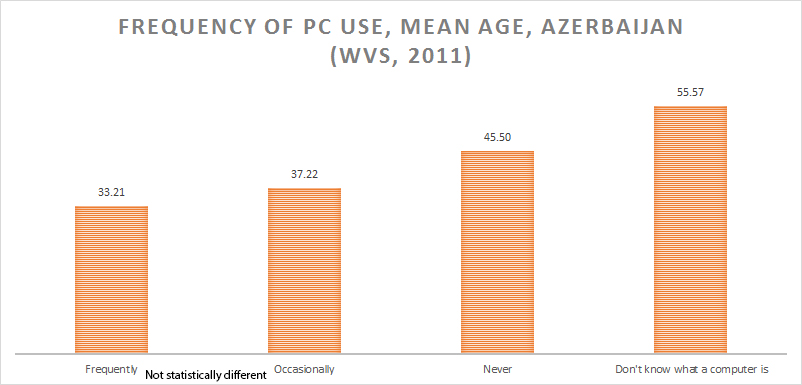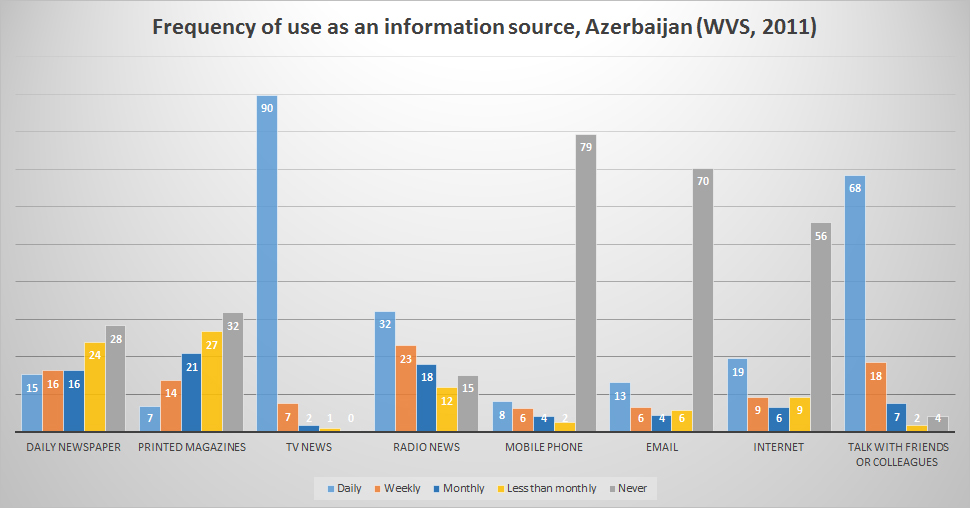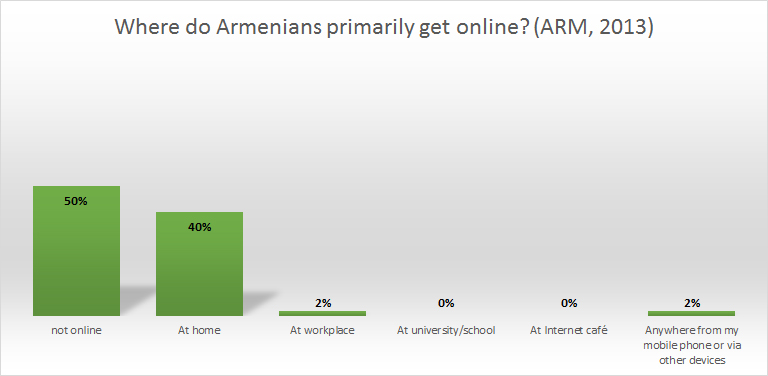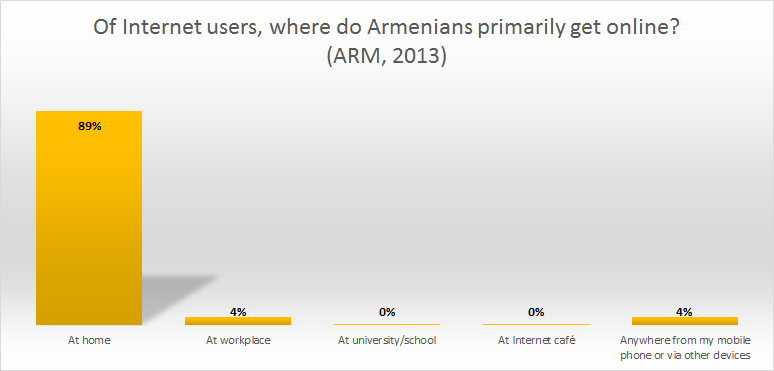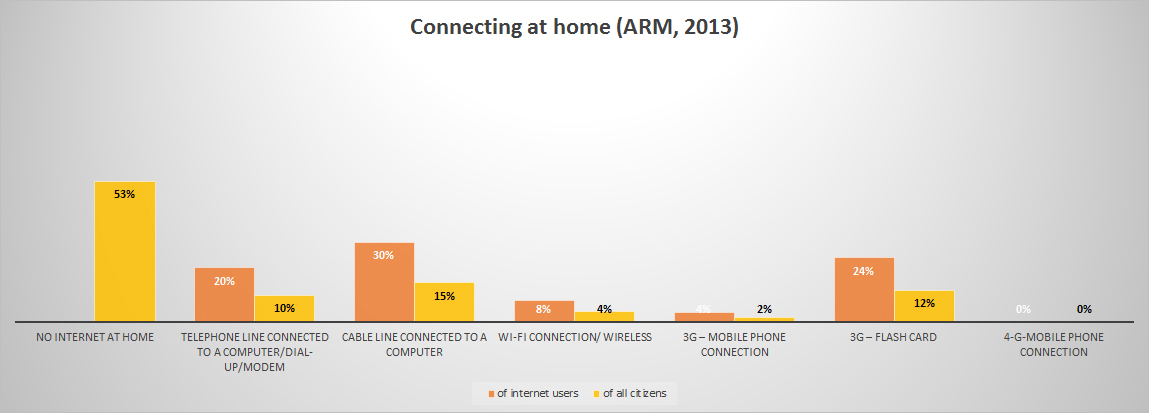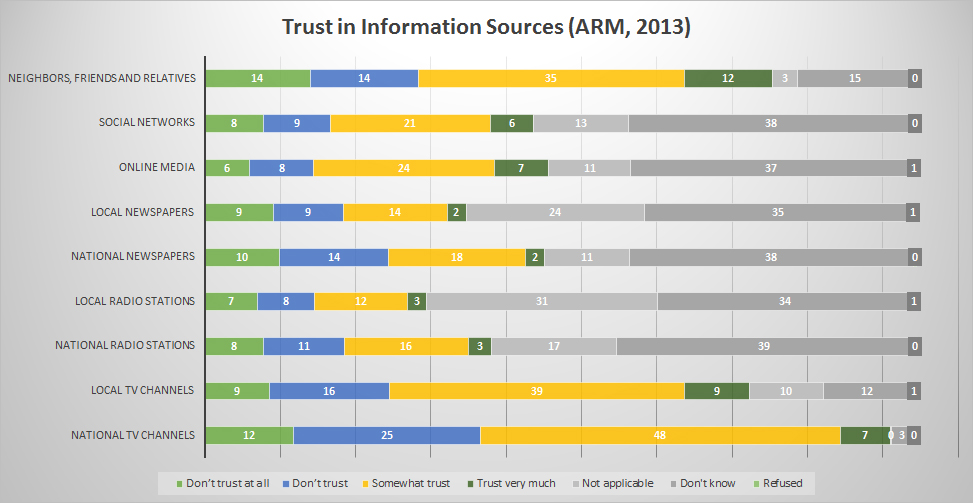WVS: Media Use – Azerbaijan
More on methodology here.
The WVS media use questions are essentially useless (sorry WVS!) for my research. They ask about frequency of use as an information source and then use of a personal computer. However, since sometimes some people question my analyses about technology use in the Caucasus, these can provide a datapoint from an alternative source.
So first, lets look at personal computer use in Azerbaijan.
As of late 2011, 50% of Azerbaijani adults never used a personal computer and less than a quarter used one frequently. (Although I looked at “size of town” and those living in places with over 500,000 residents were slightly higher with 32% using frequent, 25% using occasionally, and 42% never using.) Note that the Caucasus Barometer has 15% of households owning a personal computer in 2011 (and obviously some people use at work), but the ITU says 39% of Azerbaijani households had a PC in 2011. The WVS makes the ITU data look questionable (again).
I also looked at the average age of each of these categories.
Then looking at information sources, 70% of Azerbaijani adults never got information from email and 56% never got information from the Internet. 19% of Azerbaijanis did get information from the Internet daily though and 44% had used the Internet for information.
The Caucasus Barometer from CRRC in 2011 found that 22% of Azerbaijani adults had ever used the Internet, so that sort of lines up with this WVS data. Maybe it is possible that people are getting information FROM the Internet, but not directly? (Grandson tells Grandmother about some news he read online?). The ITU says that in 2011 42% of Azerbaijani households had PC-based Internet. Given that some people have Internet at work, this doesn’t really line up perfectly as well.
I looked at age as well and for most of these, there are no age differences. Internet does differ between ages, with the average “never” using the Internet person being 45.98 years and then the average daily user being 32.43 and the other categories being in the middle of those in their 30s. Otherwise the differences were small or none at all.
